 Director, Middle East Nonproliferation Program
Director, Middle East Nonproliferation Program
[email protected]
Washington DC
202.601.2330
Activities
Dr. Chen Zak Kane focuses on projects related to reducing the proliferation of weapons of mass destruction and terrorism, with a particular focus on the Middle East. In addition, she examines means to strengthen the International Atomic Energy Agency’s safeguards system and the projected expansion of nuclear energy in the Middle East. Dr. Kane also serves as a Project Lead of the Middle East Weapons of Mass Destruction Free Zone Project at the United Nations Institute for Disarmament Research. Dr Kane is the founder of the Middle East Next Generation Arms Control Network (http://www.menacs.org/). She has held research positions at the Belfer Center for Science and International Affairs at Harvard University, as well as the Washington Institute for Near East Policy. Dr Kane was an adviser to both the Jebsen Center for Counter-Terrorism at Tufts University, the Crown Center for Middle East Studies at Brandeis University, as well as an adjunct professor with the National Defense University. Prior to joining CNS, she worked at the Center for Strategic and International Studies (CSIS). She holds a PhD and MALD from Tufts University’s Fletcher School of Law and Diplomacy and MA and BA from Tel Aviv University.
Areas of Research
- Disarmament and Verification
- Export Controls
- International Treaties & Regimes
- Iran
- Iraq
- Middle East
- Nuclear energy in the Middle East
- Nuclear-Weapon-Free Zones
- Proliferation of WMD in the ME
- WMD Free Zone in the Middle East
Education
- B.A. in sociology, anthropology, and political science from Tel Aviv University
- M.A. in security studies from Tel Aviv University
- M.A.L.D. and a Ph.D. from Tufts University’s Fletcher School of Law and Diplomacy
CNS Work
- Assistant Secretary Ford on Efforts Toward a Middle East WMD-Free Zone
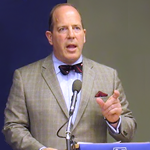 The US representative calls for “practical steps and confidence-building measures.”
The US representative calls for “practical steps and confidence-building measures.” - Why Proposals to Sell Nuclear Reactors to Saudi Arabia Raise Red Flags
 The Trump administration should negotiate a nuclear cooperation agreement as required by US law.
The Trump administration should negotiate a nuclear cooperation agreement as required by US law. - Saudi Arabia’s Suspect Missile Site and the Saudi Nuclear Program
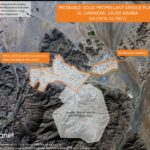 This Washington, DC event was held on March 4, 2019 at 9:30am-11:30am.
This Washington, DC event was held on March 4, 2019 at 9:30am-11:30am. - OP #43: North Korea’s International Scientific Collaborations: Their Scope, Scale, and Potential Dual-Use and Military Significance
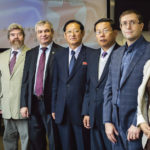 International scientific collaborations are helping North Korea advance its technology.
International scientific collaborations are helping North Korea advance its technology. - Congressional Considerations for a US–Saudi Nuclear Agreement
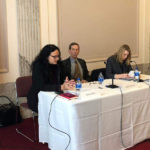 The next round of US–KSA negotiations is expected to start in early 2019. Here’s what Congress should know.
The next round of US–KSA negotiations is expected to start in early 2019. Here’s what Congress should know. - OP#39: Safeguards and Verification in Inaccessible Territories
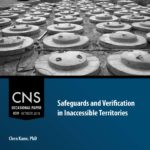 Identifying lessons from Iraq, Libya, Syria, Fukushima/Japan, and Crimea/Ukraine.
Identifying lessons from Iraq, Libya, Syria, Fukushima/Japan, and Crimea/Ukraine. - Saudi Nuclear Program at a Crossroads
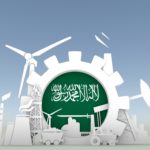 The program is barely in its infancy but has already spurred much controversy.
The program is barely in its infancy but has already spurred much controversy. - Nuclear Energy in Saudi Arabia
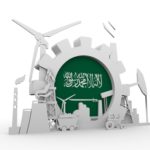 A CNS workshop discussed ramifications on Saudi electricity needs, national and regional security, reactor suppliers, and US Congressional action.
A CNS workshop discussed ramifications on Saudi electricity needs, national and regional security, reactor suppliers, and US Congressional action. - Washington’s Plan for a Nuclear Agreement with Saudi Arabia May Be in Jeopardy
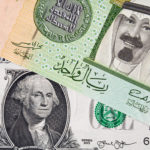 Op/ed by Chen Kane and Ramya Ramjee in National Interest
Op/ed by Chen Kane and Ramya Ramjee in National Interest - The Future of a Nuclear Middle East
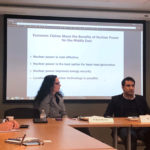 Exploring the economic and security factors of a regional push for nuclear power.
Exploring the economic and security factors of a regional push for nuclear power.
Bibliography
- Nuclear Decision-Making in Iran: A Rare Glimpse, Middle East Brief 5, May 2006.
- “The Middle East’s Interrupted Atomic Dreams,” Foreign Policy, Dec. 29, 2009.
- Nonproliferation Issues in U.S.-ROK Nuclear Cooperation, in U.S.-ROK Workshop on Nuclear Energy and Nonproliferation, the Henry L. Stimson Center and The Asia Foundation Center for U.S.-Korea Policy, January 20, 2010.
- Report of the Technical Advisory Group on Nuclear Energy in the Middle East, November 16, 2010.
- “Going Global: Issues Facing South Korea as an Emerging Nuclear Exporter,” Joint U.S.-Korea Academic Studies.
- “Time for Leadership: South Korea and Nuclear Nonproliferation,” Arms Control Today, March 2011.
- “From Donor to Partner: The Evolution of U.S. Cooperative Threat Reduction into Global Security Engagement” NTI Issue Brief, May 12, 2011.
- Scientific Engagement In The Middle East: Nonproliferation, Responsible Bioscience, and the Environment, Presentation at Global Green USA event, July 2011.
- “The role of civil society in promoting a WMDFZ in the Middle East” Disarmament Forum UNIDIR, issue 2, 2011.
